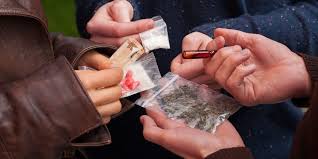Drug addiction is a complex issue that affects individuals from all walks of life. Overcoming drug addiction requires dedication, support, and a multifaceted approach.
However, this article aims to provide guidance on various strategies that can help individuals reduce or completely stop their drug addiction.
Recognize the Problem:
The first step towards overcoming drug addiction is acknowledging the problem and accepting the need for change. It’s crucial to understand the negative impact drugs have on physical and mental health, relationships, and overall well-being. This self-awareness lays the foundation for a successful recovery journey.
Seek Professional Help:
Recovering from drug addiction often requires professional assistance. Consulting with healthcare providers, addiction specialists, therapists, or counselors can provide valuable guidance and support. They can help develop a personalized treatment plan based on individual needs and circumstances.
Build a Support Network:
Having a strong support system is vital for individuals trying to overcome drug addiction. Reach out to family, friends, or support groups who understand the challenges of addiction and can provide encouragement during difficult times. Consider joining local support groups or attending therapy sessions where individuals can share experiences and learn from others facing similar struggles.
Develop Coping Mechanisms:
Drug addiction often stems from an individual’s attempt to cope with emotional or psychological challenges. Learning healthy coping mechanisms is crucial for breaking the cycle of addiction. Engaging in activities like exercise, meditation, hobbies, or creative outlets can help individuals channel their energy positively and reduce the urge to use drugs.
Establish a Routine:
Creating a structured daily routine can contribute to a sense of stability and purpose. Include activities such as work, exercise, therapy sessions, socializing, and self-care. A consistent routine helps individuals stay focused on their goals, reduces idle time, and minimizes the risk of relapse.
Identify Triggers and Avoid Temptation:
Identifying triggers—people, places, or situations that prompt drug use—is crucial for avoiding relapse. By recognizing these triggers, individuals can develop strategies to avoid or cope with them effectively. It may involve avoiding certain social circles, modifying daily routines, or developing healthier habits to replace drug-related activities.
Practice Self-Care:
Taking care of oneself physically, mentally, and emotionally is an essential aspect of recovery. This includes getting enough sleep, eating a balanced diet, engaging in regular exercise, and practicing relaxation techniques. Self-care activities promote overall well-being and help individuals manage stress without resorting to drugs.
Explore Therapeutic Interventions:
Various therapeutic interventions can aid in the recovery process. Cognitive-behavioral therapy (CBT) helps individuals recognize and change destructive patterns of thinking and behavior. Other approaches such as motivational interviewing, group therapy, or alternative therapies like art therapy or yoga can also complement the recovery journey.
Set Realistic Goals:
Recovering from drug addiction is a gradual process, and setting realistic goals is crucial for long-term success. Start with small, achievable objectives and celebrate each milestone reached. Break the recovery journey into manageable steps, focusing on progress rather than perfection.
Stay Committed and Seek Long-Term Support:
Overcoming drug addiction is a lifelong commitment. It’s essential to stay dedicated to the recovery process even after successfully reducing or stopping drug use. Continue attending therapy sessions, maintaining a support network, and seeking ongoing support to prevent relapse and promote a healthy, drug-free life.
Conclusion:
While overcoming drug addiction is challenging, it is certainly possible with the right strategies and support. By recognizing the problem, seeking professional help, building a support network, developing healthy coping mechanisms, and staying committed, individuals can successfully reduce or stop their drug addiction. Remember, recovery is a journey that requires patience, perseverance, and a focus on overall well-being.



